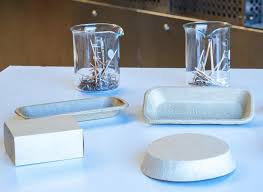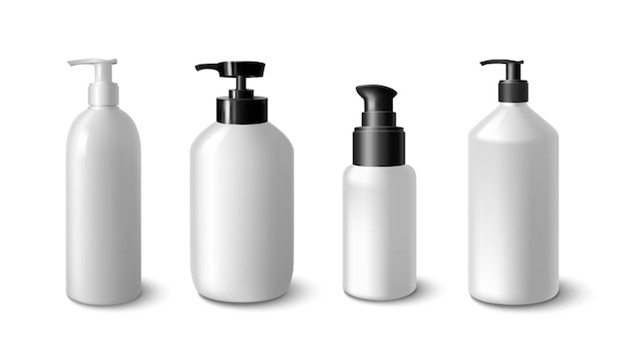
Paludicultures, including reed, peat moss, and reed canary grass, are already utilized as food, animal feed, and building materials. However, because of their low lignin content, peatland plants can also be a desirable substitute for wood as a source of raw materials for environmentally friendly paper packaging.
Wood is the primary raw material used to make paper. However, alternative raw material sources are becoming increasingly significant for the production of paper packaging due to rapidly rising market costs and Germany’s extremely high import ratio for wood raw materials (around 80%).
To evaluate related manufacturing processes for the PALUDI project, the researchers at Fraunhofer IVV in Freising and Dresden were inspired to investigate the possibilities of peatland plants like reed, sedge, or reed canary grass for sustainable packaging.
The project is part of the Fraunhofer Biogenic Value Creation and Smart Farming initiative, which is funded by the Bavarian Ministry of Economic Affairs, Regional Development and Energy, the German Federal Ministry of Education and Research (BMBF), and the Mecklenburg-Vorpommern Ministry of Science, Culture, Federal and European Affairs.
The peatland plants researched in this project are intentionally grown in rewetted peat bogs and fens. In the future, peatland plants will have more area. This is because the EU Nature Restoration Law of February 2024 requires at least 30% of forest, grassland, and wetlands surfaces to be rewetted and renatured.
This is often referred to as paludiculture.
This refers to farming in wet peatlands with locally adapted plant species. Paludicultures help to maintain the peatlands and contribute to climate protection since they minimize carbon emissions — another reason to study them further.
Fabian Kayatz, Project Head, Fraunhofer IVV
The Lower the Lignin Content, the Lower the Use of Chemicals
Reeds and similar plants have a lower lignin concentration than wood, enabling the use of fewer chemicals during the pulping of plant fibers to achieve the high-quality fiber required for packaging applications. This was determined through chemical analysis of paludicultures from the Freisinger Moos fen region. Depending on the plant, the researchers got lignin concentrations ranging from 20 to 23%.
The collected material has a 25 or 15% lower lignin concentration than softwood and hardwood.
Kayatz added, “The less lignin content, that is, the natural adhesive in the plant cell walls, the lower is the use of resources, such as acids or alkalis, during chemical pulping and the more stable is the fiber network that forms.”
Furthermore, the pulp from these plant fibers is more mechanically stable than pulp from other straw pulps, such as corn or bamboo.
Fiber Pulping Methods with Temperatures Under 100 °C
Lignin from non-woody plants is easier to release or separate from the fibers, resulting in less energy-intensive pulping procedures such as alkaline soda pulping than traditional paper manufacturing processes based on wood fibers.
The project’s pulping process was tested on reeds and then transferred to other paludicultures. The researchers were capable of working with temperatures of less than 100 °C, which are up to 45% lower than the lowest values for chemical fiber pulping methods and thus require less energy. The results showed that, depending on the settings, the Fraunhofer IVV approach could release up to 83% of the lignin.
“After the peatland plants were harvested, the obtained biomass could be further processed on an industrial scale in the pulp factory. The pulp production would then take place by pulping the plant fibers there,” Kayatz further added.
Although the project work was still done at a laboratory scale, Kayatz describes the first steps in the package production process in this way.
The pulp yield ranged from 50 to 53 percent depending on the combined parameters, which is typical for conventional chemical procedures.
Further experiments showed that the flat, fiber-molded papers generated had good processability. Compared to the reference sample, which was shaped like an egg carton, the tensile strength of the flat, fiber-molded laboratory samples was noticeably higher.
Adding additives like starch and sizing agents further improved the papers’ tensile strength, elasticity, and water-repellent qualities. Furthermore, it was discovered that papers made from paludicultures could be processed using techniques including folding, gluing, and printing.
Innovative Packaging for the Non-Food Sector
The researchers used fiber-molding and deep-drawing techniques to create robust paper trays and jars from reed fibers without adding additives. They had created a laboratory plant to produce these packaging demos.
“Peatland plants have a great potential for manufacturing innovative, bio-based packaging, as we were able to show with our successful development of resource-friendly processes for pulp production. The environmental aspect is very important to us — we support the preservation of our peatlands by rewetting agricultural lands and using them for paludicultures, for example,” Kayatz summarized.
However, more optimization techniques are required to take production to an industrial scale, and designing consumer-acceptable packaging for consumer goods necessitates additional property optimization phases, such as sensory perception or material coating. Initially, there are intentions to create packaging for non-food industries such as cosmetics, logistics, and office supplies.






